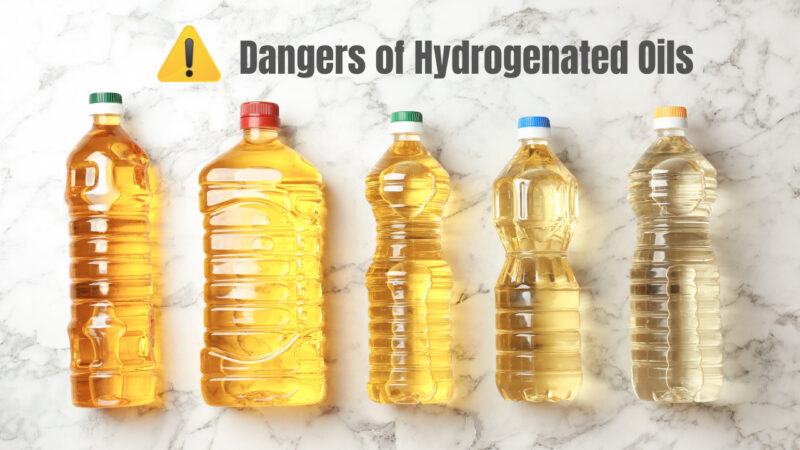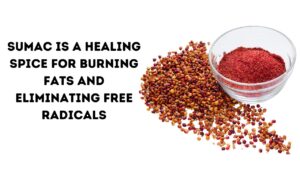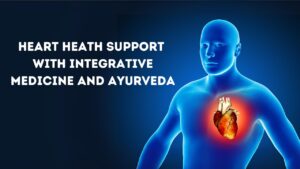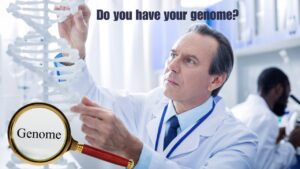Dangers of Hydrogenated Oils
Some fatty acids (especially in plant oils) have “empty spots”, meaning some hydrogens are missing. Such chains are unsaturated fatty acids. Chains missing one hydrogen are monounsaturated fatty acids and chains missing two or more hydrogens are polyunsaturated fatty acids.
Points of unsaturation are vulnerable to oxygen and when these points become oxidized, the oil becomes rancid (these oils should be stored in tightly covered containers). To prevent spoilage and prolong shelf life, food companies change unsaturated fatty acids chemically by hydrogenation (hydrogen is forced into the oil).
Complete hydrogenation converts unsaturated fatty acids into saturated fatty acids. These chemically altered fatty acids are trans fatty acids. Hydrogenated oil and partially hydrogenated oil are oils that have been chemically changed.
Some countries have banned hydrogenated and partially hydrogenated oils because of the harmful effects it has on the body. According to the Institute of Medicine, trans fatty acids should be avoided completely (no level is safe).
Consuming hydrogenated oil and partially hydrogenated oil (trans fatty acids) can do the following:
- raise bad cholesterol (LDL)
- lower good cholesterol (HDL)
- increase blood insulin
- affect the immune system
- potentiate free radical formation
Dangers of hydrogenated oil and partially hydrogenated oil include putting one at risk of developing heart disease, diabetes, cancer, liver disease, obesity, ADHD, learning disabilities, childhood asthma, birth defects, low birth weight, and more.
Read Food Labels Closely
If a serving is less than 0.5 grams of trans fatty acids, products have the right to claim zero trans fatty acids. Food companies get away with this by increasing serving sizes. For example, a protein bar (claiming to be healthy) may have 4 servings and each serving contains 0.4 grams of trans fatty acids. Although it can legally say it has no trans fatty acids, it actually contains 1.6 grams of harmful trans fatty acids.
Read all food labels closely, including the ingredients. Anything containing hydrogenated oil or partially hydrogenated oil contains trans fatty acids.
Monounsaturated and polyunsaturated fatty acids are good for you. Limit saturated fatty acids and avoid trans fatty acids (trans fatty acids are more dangerous to you than naturally occurring saturated fats).
Some common foods that contain hydrogenated oil and partially hydrogenated oil include:
- crisco
- margarine
- baked goods (bread, crackers, cookies, cakes, pies, doughnuts, biscuits and muffins)
- candy
- ice cream
- peanut butter
- pizza
- french fries
Mind & Body Wellness Disclaimer
The information in the article this disclaimer is linked from should not be considered medical advice. The information in the article this declaimer is linked from is not meant to treat, diagnose, prescribe or cure any ailment. Always check with your physician before taking any products or following any advice you have read.




